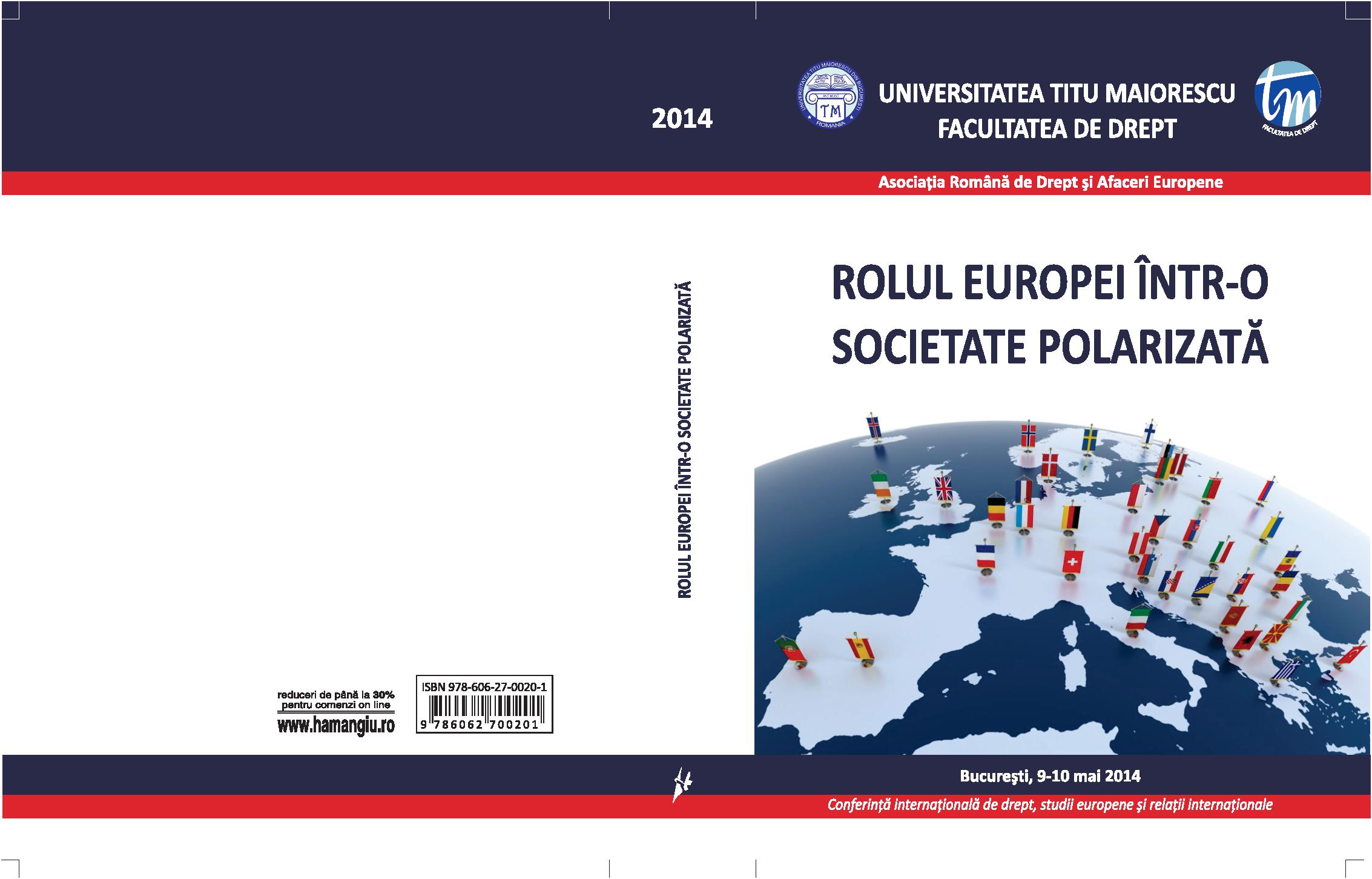Convenția Națiunilor Unite privind contractele
pentru transportul internațional de mărfuri în
întregime sau parțial pe mare – Regulile de la Rotterdam
UNITED NATIONS CONVENTION FOR THE INTERNATIONAL CARRIAGE OF GOODS TOTALLY OR PARTIALLY BY SEA CONTRACTS – ROTTERDAM RULES
Author(s): Tudor MarinSubject(s): International Law
Published by: Editura Hamangiu S.R.L.
Keywords: jurisdiction; arbitration; rights’ transfer; carrier; dangerous goods;
Summary/Abstract: The most interesting and controversial evolution in Rotterdam Rules, is the formula adopted for approaching the basic issue of carrier’s liability. The solution they came up with is a combination between the approaches in Hague and Hamburg Rules. The definition of the carrier’s liability is included in a modified version of art. 5.1 in Hamburg Rules, based on the fault with the diligence of proof reversed. Therefore, if the claimant can establish that the loss, damage or delay took place within the liability period of the carrier, the carrier will be liable if he is not able to prove that neither his fault nor the fault of any other “acting party” din not cause or contribute to the loss, damage or delay . The carrier may prove that the loss, damage or delay was due to a list of events acting as a presumption of lack of fault on his part. The Convention reiterates the obligations of the Hague and Visby Rules for due diligence in order to make the ship seaworthy along with the duty to carefully and properly care for the cargo during the carrier’s period of responsibility. In the case of the request for a seaworthy ship, this is for the first time mentioned as a continuous obligation during the voyage. According to the Convention, a claimant must be able to reject the assumption of lack of fault resulted from the carrier’s claim of an exception, establishing that, the operational cause for the loss was either that the ship was unseaworthy or lack of due diligence from the carrier. According to the provisions of this Convention, carriage of cargo on deck is allowed „only if such carriage is requested by law”, and „deck carriage is performed according to the carriage contract, of custom, usage or practices in that field”.
Journal: Conferința Internațională de Drept, Studii Europene și Relații Internaționale
- Issue Year: II/2014
- Issue No: II
- Page Range: 819-830
- Page Count: 12
- Language: Romanian

